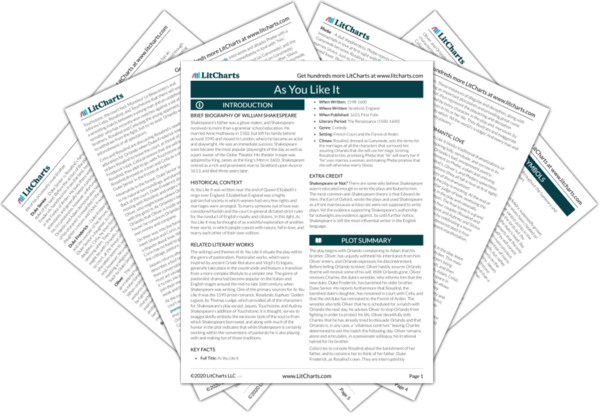AI ToolsNew
Tools to make learning and teaching easier
|
Previous
Act 2, Scene 3
|
As You Like It: Act 2, Scene 4 Summary & Analysis
New! Understand every line of As You Like It.
Read our
modern English translation
of this scene.
|
Next
Act 2, Scene 5
|
